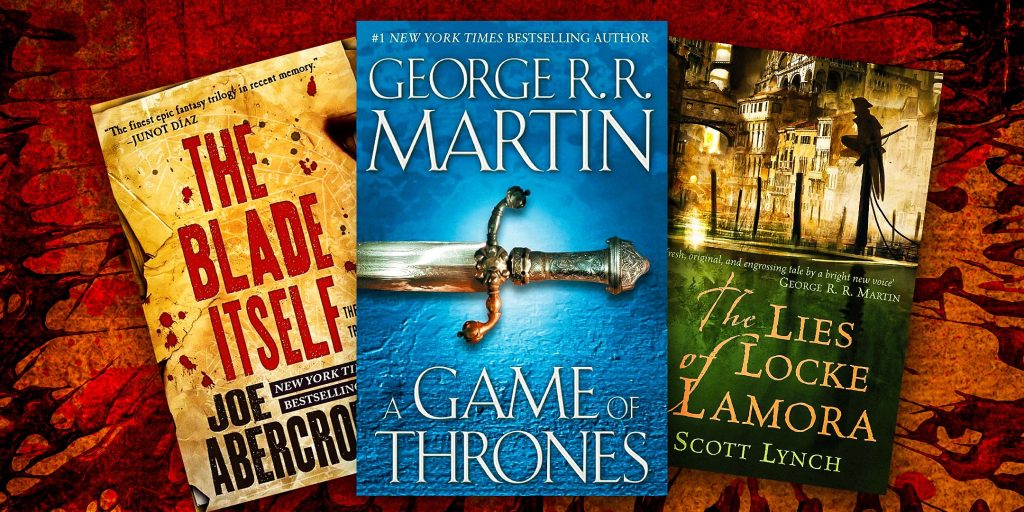
Grimdark fantasy has seeded its way into the minds of readers, cultivating a robust subgenre that revels in its darkest narratives. This particular strain of storytelling, characterized by moral ambiguity, tragic settings, and a pronounced absence of heroic saviors, invites those brave enough to explore its shadowy depths. While traditional fantasy often offers hope in the face of evil—think J.R.R. Tolkien and his indomitable fellowship—grimdark casts a much grimmer shadow, challenging us to confront the often ugly truths of humanity.
Many authors have ventured into this unsettling terrain, leaving a lasting impact on the genre. Among the most notable series, Mark Lawrence’s “The Broken Empire” stands out, commencing with “Prince of Thorns” in 2011. Lawrence deftly follows the character Jorg, whose tragic backstory fuels his vengeful journey through a grim world drowned in violence and despair. As the trilogy progresses, the narrative deepens, compelling readers to traverse Jorg’s tumultuous psyche.
Equally compelling, John Gwynne’s “The Faithful and the Fallen” series melds elements of grimdark with a narrative that straddles the line between hope and despair. Set in the Banished Lands, this contemporary saga faces a world on the brink of cataclysm, with its violent past simmering beneath the surface. Gwynne’s work resonates well with fans of intense, action-fueled stories, demonstrating that even amid chaos, skillful storytelling reigns supreme.
In the shadow of the early 2000s, R. Scott Bakker’s “The Prince of Nothing” emerges, contributing to a larger narrative tapestry known as “The Second Apocalypse.” Bakker’s exploration of a brutal holy war unfolds alongside critiques of the heroic archetype, digging deep into the psychology of power and its consequences. Though divisive among readers, this trilogy offers a stark glimpse into the existential quandaries of a blisteringly dark realm.
Michael Moorcock’s “Elric Saga” remains a cornerstone of grimdark fantasy. Centering on the brooding antihero Elric of Melniboné, Moorcock’s narrative captures the essence of despair and introspection, influencing countless authors who followed. Its originality and thematic depth make it essential reading for any devoted aficionado of the genre.
Steven Erikson’s “Malazan Book of the Fallen” series embodies intricacy and depth, navigating the treacherous waters of human morality. Though Erikson himself distances his work from pure nihilism, the series grapples with the darkness of the human condition while still offering glimpses of hope. The ambitious, sprawling narrative resonates with readers eager to unravel its complex threads.
Glen Cook’s “The Black Company” extends a long shadow over grimdark storytelling. Following a mercenary group entrenched in violence and warfare, Cook’s works set the stage for modern grimdark narratives. The slew of morally ambiguous characters reflects a stark reality, establishing a canon that still influences contemporary authors.
George R.R. Martin’s “A Song of Ice and Fire” might not dive headlong into the murkiest waters of grimdark, but its contributions to the genre cannot be overstated. Martin’s distinctive approach to character morality breaks the molds of traditional fantasy, presenting readers with a tapestry woven of intrigue, ambition, and the brutal realities of power.
Among the rising stars of the genre, Scott Lynch’s “Gentleman Bastard” series adds a touch of wit and style to its dark underbelly. Set against a backdrop reminiscent of late medieval Venice, it follows witty con-men navigating a world where the rich prey upon the poor. Lynch’s blend of humor and dark themes resonates deeply with readers hungry for a fresh take.
R.F. Kuang’s “The Poppy War” trilogy carves its niche through a blend of historical influence and ruthless storytelling. Taking inspiration from the Sino-Japanese wars, Kuang’s narrative weaves together brutality and ambition, dooming its protagonist, Rin, to a tumultuous path. Her journey serves as a reflection of historical parallels, giving readers a visceral window into the costs of war.
Leading the charge in grimdark fantasy is Joe Abercrombie’s “The First Law” series. An exemplar of the subgenre, Abercrombie challenges conventional narratives, plunging readers into a world rife with moral decay and flawed characters. In this vividly rendered landscape, hope is a scarce commodity, paving the way for a uniquely dark yet exhilarating reading experience.
In summary, while the grimdark fantasy genre may veer away from the optimistic heroics that define traditional narratives, its draw lies in the richness of its characters and the complexity of its settings. As readers navigate through the labyrinth of morality and despair, they uncover stories that challenge perceptions and provoke thoughtful discussions about the human experience. This style of storytelling is undoubtedly captivating, compelling readers to peer into the abyss and face the darkness that lurks within.





